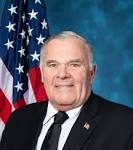By Lesley Weidenbener
TheStatehouseFile.com
Lesley Weidenbener, managing editor, TheStatehouseFile.com
INDIANAPOLIS – The biggest question about the upcoming session of the Indiana General Assembly is how legislative leaders will handle a proposed constitutional amendment to define marriage as the union of one man and one woman.
![]() Referred to by many as a ban on same-sex marriage, the proposal has already passed the legislature once. If it passes again, the amendment goes to the ballot for possible ratification by voters.
Referred to by many as a ban on same-sex marriage, the proposal has already passed the legislature once. If it passes again, the amendment goes to the ballot for possible ratification by voters.
But it’s not been clear whether House Speaker Brian Bosma, R-Indianapolis, and Senate President Pro Tem David Long, R-Fort Wayne, plan to allow votes on the proposal at all. And recently, they’ve been avoiding the question.
That might be about to change – and the answer could affect the rest of the legislative session.
The leaders will be part of a panel Monday sponsored by the Indiana Chamber of Commerce, which has not taken a stand on the amendment. In past events, questions for the panel have typically come from the chamber’s president, Kevin Brinegar, and from business leaders in the audience.
It seems unlikely the same-sex issue won’t come up, particularly because the event is on the eve of the legislature’s Organization Day. That’s the official start of the 2014 session, although work won’t begin in earnest until January.
So even if the question doesn’t come up at Monday’s panel, it will certainly be posed by reporters on Tuesday.
Bosma and Long’s silence on the issue so far seems to indicate indecision about the issue among Republicans, who have quorum-proof majorities in both the House and Senate. That’s no surprise – but it is a change.
The marriage amendment passed easily – with both Republican and Democratic support – in 2011.
Then last year, the leaders announced they were postponing votes on the amendment because the U.S. Supreme Court was considering another state’s marriage laws. Bosma and Long said then that they planned votes in 2014 and expected the measure to pass.
But much has changed.
This summer, the high court struck down the federal Defense of Marriage law, essentially opening federal benefits to legally married, same-sex couples. However, the court said states could still impose bans.
A coalition of businesses and other organizations that oppose the amendment have nabbed some pretty high-profile members of late, including Indiana University, Ball State University, Emmis Communications and the Indy Chamber. Already, two of Central Indiana’s biggest employers – Eli Lilly & Co. and Cummins Inc. – are on board.
Meanwhile, public opinion has been moving quickly, with more and more Hoosiers saying they either oppose the constitutional amendment or support same-sex marriage.
The WISH-TV/Ball State Hoosier Survey revealed last week that Hoosiers are split on the issue of legalizing same-sex marriage, with 48 percent supporting the idea and 46 percent opposing it – a statistical tie.
But the poll also found that just 38 percent of respondents support the marriage amendment while 58 percent are opposed.
Ball State political science professor Ray Scheele told WISH-TV that the opposition to the amendment is growing. “And that’s been true over the last couple of years,†he said.
Legislative leaders have some tough decisions to make about the proposal. We may find out soon which way they are leaning.
Lesley Weidenbener is executive editor of TheStatehouseFile.com, a news website powered by Franklin College journalism students.






If Indiana does not constitutionally define its constitutional definition of marriage, then does the definition remain undefined? If it is undefined, and if Indiana begins granting marriage licences to those of the same gender based on mutual consent and commitment, then how will they deny a license to other unions based on the same mutual consent and commitment? Further more, how will a business or a church because of personal convictions decline offering their services to same sex unions?
While I am for all consenting adults to have have the right to build a life together with whomever they choose without penalty or hindrance, whether they are legally married or not, any line drawn for what qualifies as a legal marriage will discriminate against someone.
I also call bogus this idea that if we do not have homosexual marriage that Indiana will face economic doom.
While I believe an amendment would pass, perhaps the only fair solution is for Indiana to no longer grant marriage licenses.
A well reasoned comment Indianaenoch. My contention is why all of the hand wringing about the legislative vote? Let the voters decide, they are the final authority in this process and to cheer lead and grandstand in an effort to deny them a voice in such a contentious social and political issue is disingenuous at best.
I found an interesting article on states that have added constitutional definitions of marriage that do not include same sex marriage.
http://features.pewforum.org/same-sex-marriage-state-by-state/
There are some changes that have not been updated on the map.
It appears that we are being misled as to Indiana being the odd man out and subjecting itself to economic doom. My issue has always been that the facts and methodology surrounding this issue is misleading and flawed.
The map also reveals why Indiana and New Mexico are epicenters to this issue.
Comments are closed.